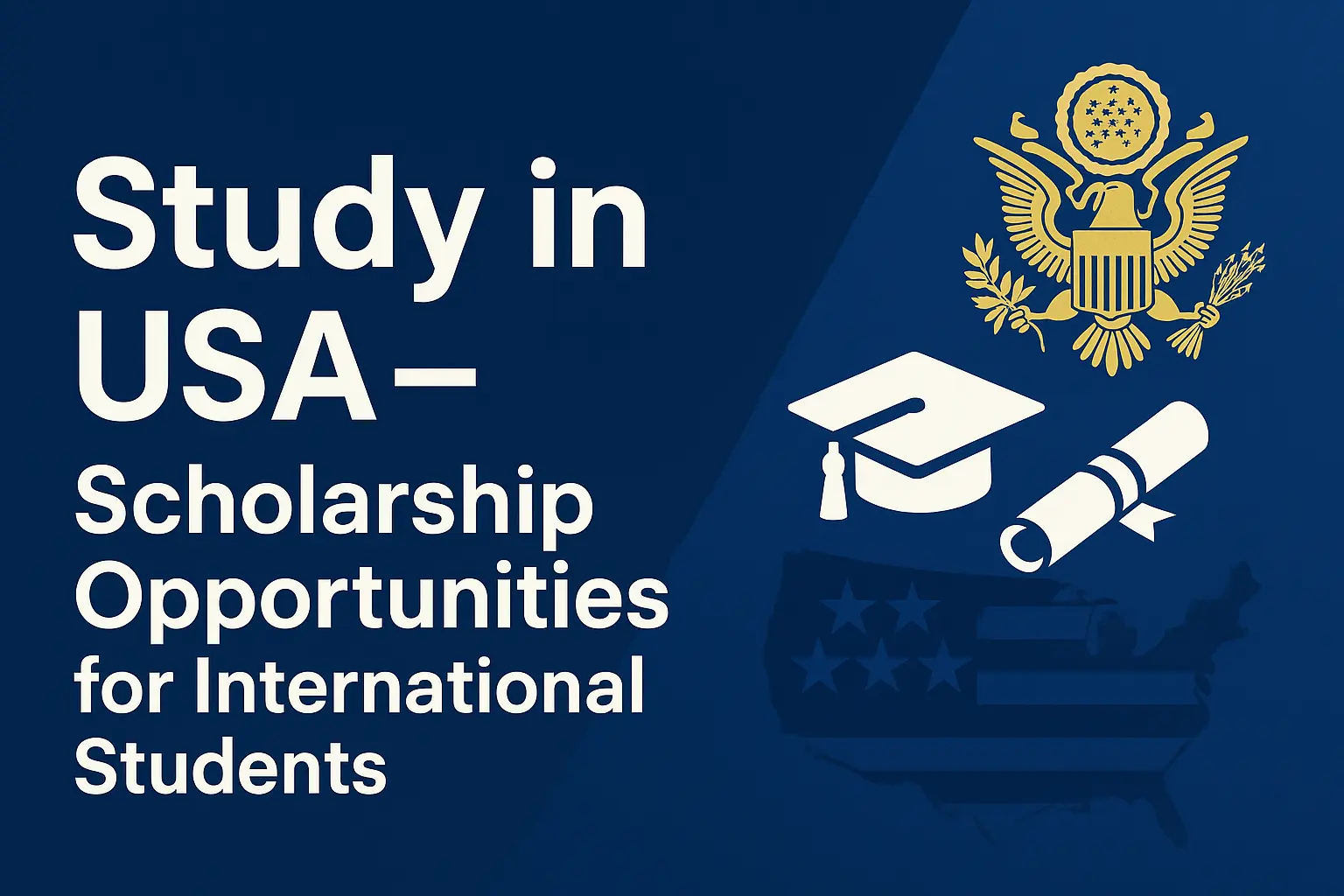Discover how to study law in the USA for international students. Explore top U.S. law schools, JD and LLM programs, scholarships, visa requirements, and high-paying legal careers.
In 2023, Maria, a bright student from Nigeria, faced a pivotal decision: where to pursue her legal education. She dreamed of becoming an international human rights lawyer, but her home country’s legal system differed significantly from global standards. After extensive research, she chose to study law in the United States, drawn by its prestigious institutions, diverse specializations, and strong career prospects.
Maria’s story is not unique. Every year, thousands of international students flock to U.S. law schools, seeking world-class education, networking opportunities, and a competitive edge in the global legal market. However, navigating the complex admissions process, securing scholarships, and understanding visa requirements can be daunting.
This comprehensive guide explores everything international students need to know about studying law in the USA—from top law schools and admission requirements to scholarships and financial aid options. Whether you aspire to practice corporate law, human rights, or intellectual property, this article provides the insights you need to make an informed decision.
Why Study Law in the USA?
Studying law in the United States offers world-class education, prestigious qualifications, and diverse career paths. The country hosts the best law schools globally, including Harvard, Yale, Stanford, Columbia, and NYU, making it the dream destination for aspiring lawyers.
1. Globally Recognized Degrees
A U.S. law degree such as the JD or LLM is globally respected. Graduates from accredited American law schools often gain faster career advancement, lucrative salaries, and access to international legal markets. Major employers, NGOs, and multinational corporations recognize the academic rigor of U.S. legal education.
2. Diverse Specializations
U.S. law schools offer specialized programs in areas like environmental law, intellectual property, international business law, and human rights. This flexibility allows students to tailor their education to their career goals.
3. Practical Training Opportunities
Many U.S. law schools integrate clinical programs, internships, and moot court competitions into their curricula. These hands-on experiences help students develop practical skills and build professional networks.
4. Strong Career Prospects
Graduates from top U.S. law schools often secure positions at elite law firms, multinational corporations, and international organizations. Additionally, an LLM degree can enhance career prospects for foreign-trained lawyers looking to work in global legal markets.
A U.S. LLM degree or JD qualification significantly boosts employability in both domestic and global legal systems.
Types of Law Degrees for International Students
International students can pursue different law degrees in the U.S., depending on their academic background and career objectives:
1. Juris Doctor (JD) – The Primary Law Degree
The JD is a three-year professional degree required to practice law in the U.S. International students with a bachelor’s degree in any field can apply, but admission is highly competitive.
2. Master of Laws (LLM) – For Foreign-Trained Lawyers
The LLM is a one-year advanced degree designed for lawyers who have already earned a law degree in their home country. It allows foreign attorneys to specialize in U.S. law or a specific legal field.
3. Doctor of Juridical Science (SJD) – For Legal Scholars
The SJD is a research-focused doctoral degree for those pursuing academic careers in law. Admission is extremely selective, with most applicants holding both a JD and an LLM.
Scholarships and Financial Aid for International Law Students
Studying law in the USA can be costly, but there are numerous fully funded and merit-based scholarships available for qualified international students.
1. Harvard Law School
Harvard is renowned for its global influence and extensive alumni network. Its LLM program attracts top legal minds from around the world, offering specializations in international law, human rights, and corporate law.
2. Yale Law School
Yale’s small class sizes and emphasis on interdisciplinary learning make it ideal for students interested in academia or public policy. The school offers generous financial aid, including need-based scholarships.
3. Stanford Law School
Located in Silicon Valley, Stanford excels in technology law, intellectual property, and entrepreneurship. Its proximity to major tech firms provides unparalleled internship and job opportunities.
4. Columbia Law School
Columbia is a top choice for students interested in corporate and financial law. Its New York City location offers access to leading law firms and international organizations.
5. New York University (NYU) School of Law
NYU is known for its strong international law program and diverse student body. The school offers numerous scholarships for LLM students, including the Hauser Global Scholarship.
Admission Requirements for International Students
Admission to U.S. law schools is highly competitive. Here are the key requirements:
1. Academic Credentials
- For JD programs: A bachelor’s degree from an accredited institution.
- For LLM programs: A first law degree (LLB or equivalent) from a recognized university.
2. Standardized Tests
- JD Applicants: Must take the Law School Admission Test (LSAT).
- LLM Applicants: Typically need a strong TOEFL or IELTS score (unless exempt).
3. Letters of Recommendation
Most schools require 2-3 recommendation letters from professors or legal professionals who can attest to the applicant’s academic and professional potential.
4. Personal Statement
A compelling personal statement outlining the applicant’s motivations, career goals, and reasons for choosing a specific law school is crucial.
5. Resume/CV
A detailed resume highlighting academic achievements, work experience, internships, and extracurricular activities strengthens an application.
Scholarships and Financial Aid for International Students
Studying law in the U.S. is expensive, with tuition at top schools exceeding $70,000 per year. Fortunately, numerous scholarships and financial aid options are available:
1. Merit-Based Scholarships
Many law schools offer merit-based scholarships to outstanding international students. Examples include:
- Harvard’s LLM Financial Aid: Need-based grants covering partial to full tuition.
- Yale’s Hurst Horizon Scholarship: Full tuition for students from low-income backgrounds.
- NYU’s Hauser Global Scholarship: Full tuition for exceptional LLM candidates.
2. External Scholarships
Several organizations provide funding for international law students:
- Fulbright Program: Offers grants for graduate study in the U.S.
- AAUW International Fellowships: Supports women pursuing graduate degrees.
- The Gates Scholarship: Covers full tuition for outstanding minority students.
3. University-Specific Aid
Some universities offer institutional aid based on financial need. For example:
- Stanford’s Knight-Hennessy Scholars Program: Covers full tuition and living expenses.
- Columbia’s Foreign Graduate Fellowship: Provides stipends for LLM students.
4. Student Loans
International students can explore private loan options, such as Prodigy Finance and MPOWER Financing, which offer loans without requiring a U.S. co-signer.
How to Apply for Scholarships as an International Student
Securing scholarships requires careful planning and a strong application. Follow these steps:
1. Research Early
Start searching for scholarships at least a year before applying. University websites, scholarship databases (like Fastweb and ScholarshipPortal), and government-sponsored programs (like Fulbright) are excellent resources.
2. Meet Eligibility Criteria
Ensure you meet all requirements, including academic qualifications, language proficiency, and nationality restrictions.
3. Prepare a Strong Application
- Write a compelling personal statement.
- Secure strong recommendation letters.
- Highlight leadership roles and community involvement.
4. Submit Before Deadlines
Scholarship deadlines vary, so track them carefully. Some require separate applications, while others consider applicants automatically upon admission.
Visa Requirements for International Law Students
To study in the U.S., international students must obtain an F-1 or J-1 student visa. The process includes:
1. Receiving an I-20 Form: After admission, the university issues an I-20 (for F-1 visas) or DS-2019 (for J-1 visas).
2. Paying the SEVIS Fee: Before the visa interview, students must pay the SEVIS fee ($350 for F-1 visas).
3. Attending a Visa Interview Applicants must schedule an interview at a U.S. embassy or consulate, providing proof of financial support and intent to return home after studies.
Conclusion: Is a U.S. Law Degree Right for You?
Studying law in the U.S. offers unparalleled opportunities but requires significant investment. By researching scholarships, choosing the right school, and preparing a strong application, international students can turn their legal aspirations into reality.





